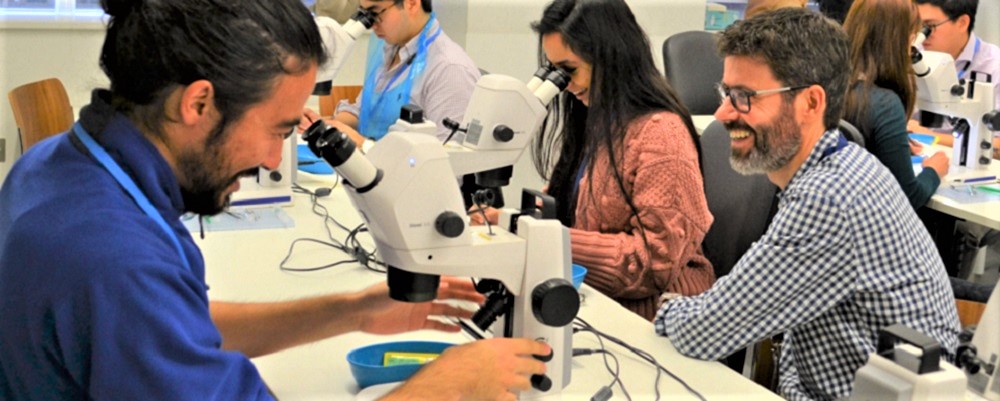Ophthalmology is a small but highly competitive medical and surgical specialty, dealing with diverse ophthalmological problems and a wide range of patients from premature babies to the older population. Working alongside other professional colleagues, you will have the chance to offer sight-saving microsurgical or pharmacological treatments to patients of all ages, along with sub-specialty work in rare diseases.
Doctors training to be consultant ophthalmologists are trained in a variety of special interest areas and go on to make a career in one or more of the following:
- Oculoplastics and Orbit
- Cornea and Ocular Surface Disease
- Cataract Surgery
- Glaucoma
- Uveitis
- Medical Retina
- Vitreoretinal Surgery
- Ocular Motility
- Neuro-ophthalmology
- Paediatric Ophthalmology
- Urgent Eye Care
- Community Ophthalmology
I became an ophthalmologist because it allowed me to blend medicine and surgery in a highly technical environment and in a discipline which is evolving. I wanted the challenge of learning new skills and knowledge and the satisfaction of highly effective treatments.
What to expect as an ophthalmologist
Whilst the surgical workload of a general ophthalmologist may include squint and glaucoma surgery, oculoplastic and nasolacrimal surgery, cataract is the most commonly known eye condition that ophthalmologists deal with. Many of the population will need cataract surgery at some point in their lifetime. Because of the diversity of eye disease and patients, ophthalmologists may discuss a patient’s care and co-morbidities involving many other areas of medicine such as diabetes, rheumatology, neurology, ENT and maxillofacial surgery, plastic surgery, paediatrics and genetics. Read the short career guide So you want to be an Ophthalmologist? for more information.
Another important part of the patient care involves partnerships with other professions that ensure a joined up approach across primary and secondary care.
The road to qualification is challenging, but there are plenty of rewards and career routes to pursue, including academic research.
Find out more about our Ophthalmic Specialist Training (OST) Curriculum
National Recruitment for Ophthalmic Specialist Training (OST)
NHS England (South West) coordinate national recruitment into OST on behalf of The Royal College of Ophthalmologists.
Candidates are able to preference all available posts across England, Scotland, Wales and Northern Ireland.
All queries should be made directly to the recruiting team either by ringing 01454 252610 or emailing [email protected] .
2026 National Recruitment
Applications opens: autumn 2025 date to be confirmed
Closing date: date to be confirmed
Interview dates: date to be confirmed
Please follow the link for guidance and to view the person specification.
It is only possible to join the training programme as OST1. (The last opportunity of direct entry as OST3 was in August 2023.)
Candidates with more than 30 months of ophthalmology experience will not be eligible to apply for OST posts and will need to explore the Portfolio Pathway route (formerly known as CESR).
Medical Ophthalmology
ST3 Medical Ophthalmology entry requirements changed in 2016. Trainees from an ophthalmology background – who completed OST2 and passed the FRCOphth Part 1 by August 2016 – may be eligible to apply. Successful applicants enter at ST3 level but complete a period of core medical training as part of their programme.

